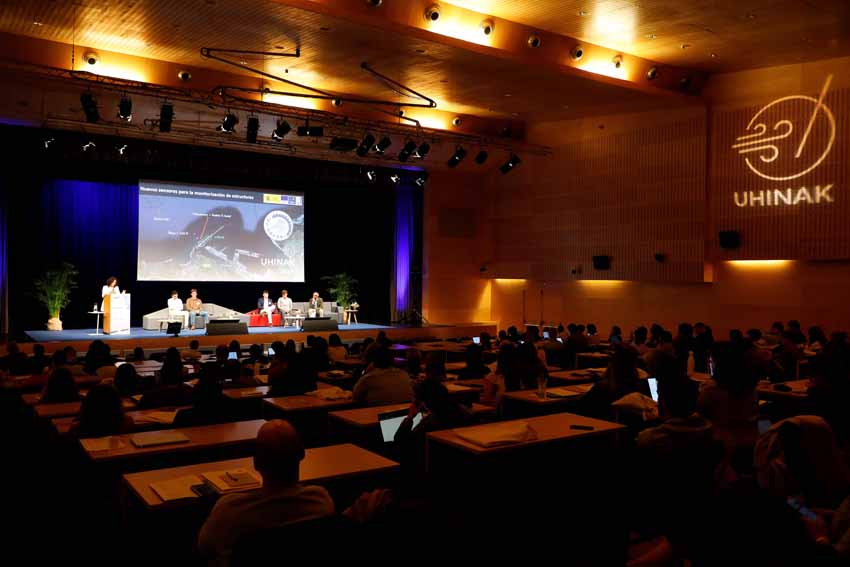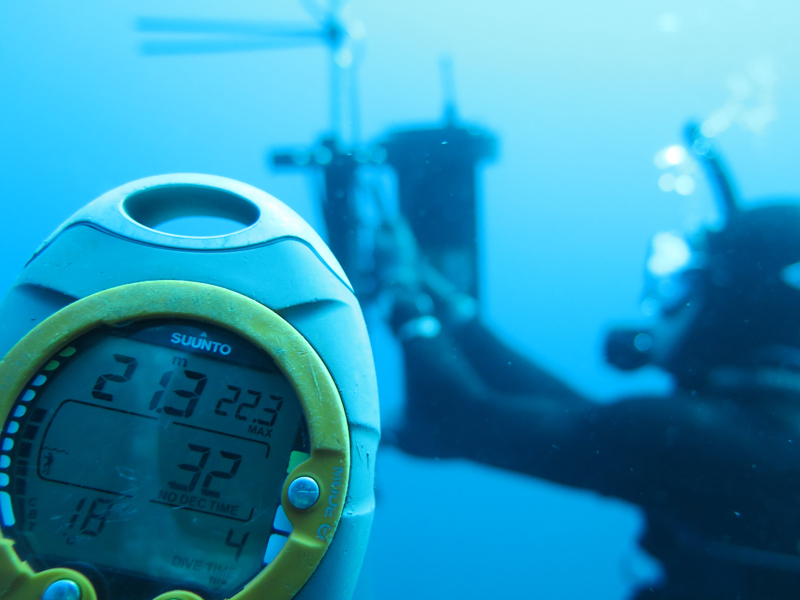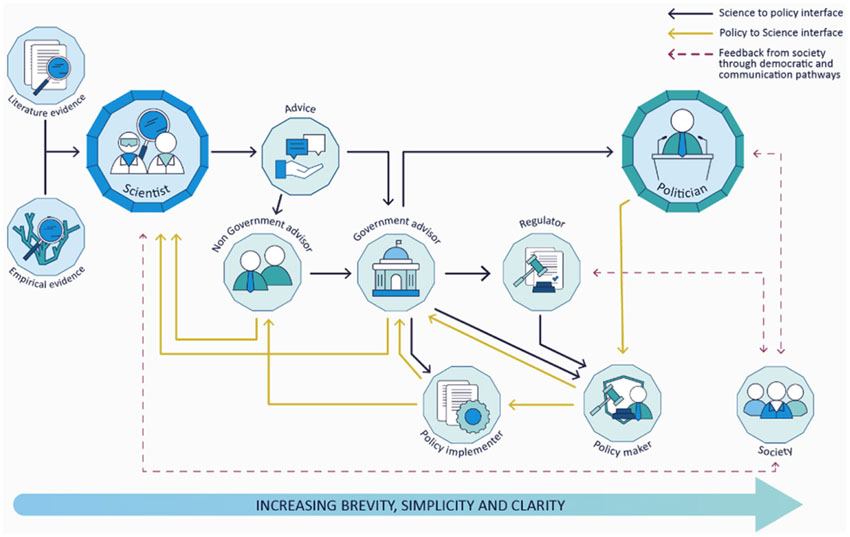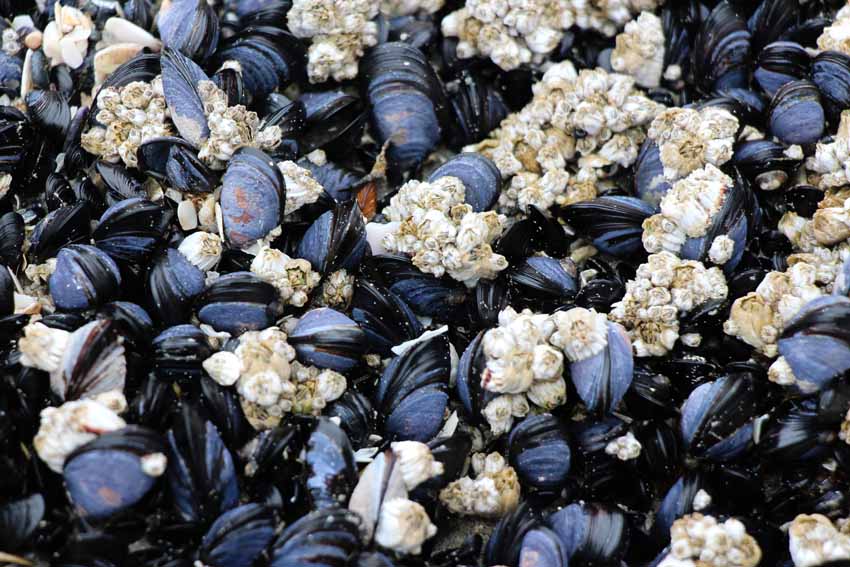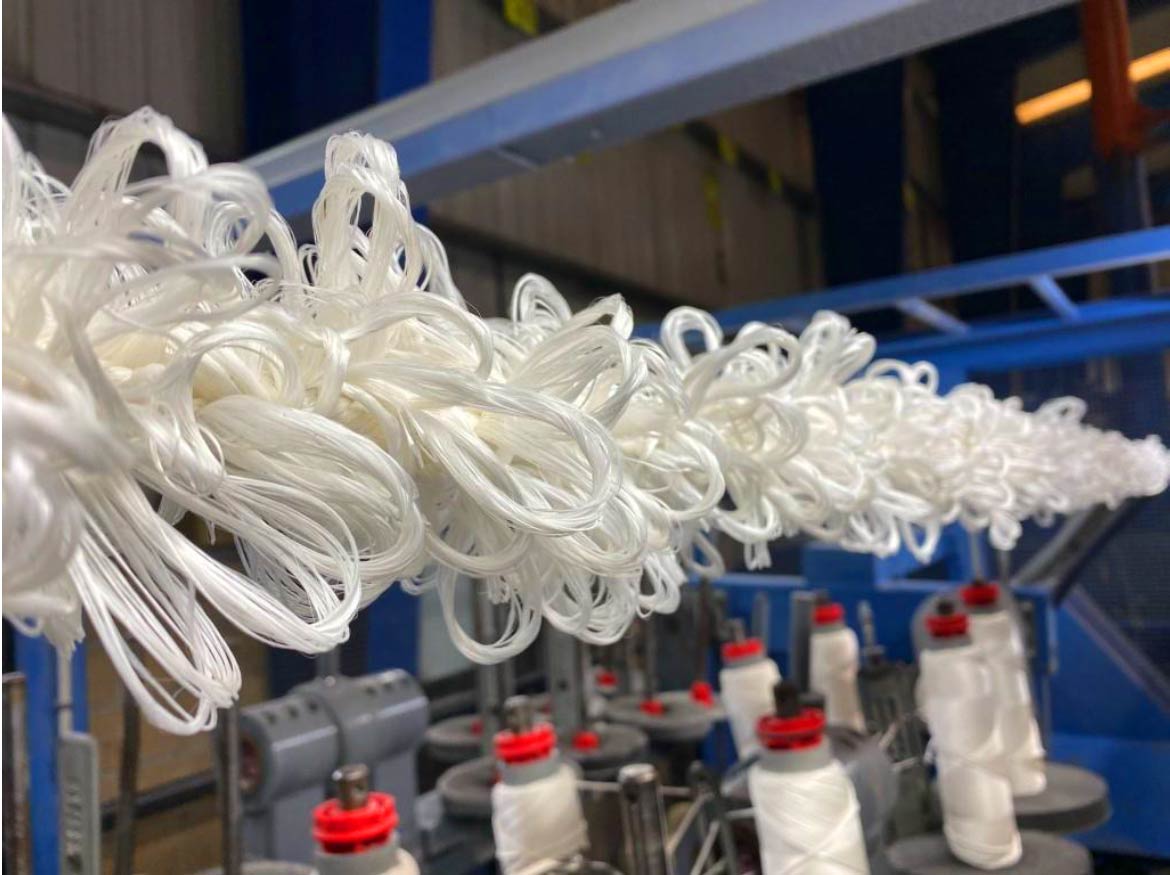Uhinak 2020: “Time to start talking about adapting to the effects of climate change”
Últimas noticias
A pioneering genetic catalogue reveals hidden biodiversity in Basque estuary sediments
Uhinak Technical Committee Sets the Key Points for the 7th International Congress on Climate Change and the Coast
“We fishermen are the ones who earn the least”
- 180 people took part over two days in the Cross-Border Conference on Climate and Coastal Change, held in a hybrid format: in person and online
- Scientists, technicians and managers participated in 11 expert seminars and more than 40 presentations
(6 November 2020). On 4 and 5 November Ficoba became a place for discussion on the knowledge and management applied to the challenges of the climate emergency affecting the seas, coasts and their resources. The experts, technicians and managers gathered at the 4th Cross-border Conference on Climate and Coastal Change agreed that it is necessary to continue with climate change mitigation measures, but that it is also necessary to start proposing adaptation strategies to avoid the adverse consequences of climate change on our coasts.
This practical approach of the conference, showing the reality of the existing problems and the solutions that are being adopted or should be adopted, even touching on the details at the local level, is one of the defining characteristics of Uhinak.
From this perspective, Uhinak analysed the impact of current and future climate change on the coast and on our society: rising sea levels, erosion, risk of flooding, loss of habitats and resources, etc. Another of the central themes of this event, promoted by Ficoba and the AZTI technology centre, was the role that the ocean will play in mitigating climate change: solutions for CO2 capture, ecosystem recovery, circular economy, blue carbon and green infrastructure, etc.
Uhinak has grown in its fourth edition, including valuable contributions to the study of climate change beyond the coast and our nearby seas, evaluating the biological productivity of the Cantabrian and Aquitaine shelf, proposing ecosystem management of the coast, learning about the effects of extreme storms in the Mediterranean with simultaneous wind, waves and torrential rainfall, and including, among others, the ideas and experiences of the World Network of Coastal Biosphere Reserves.
But, not only have the risks we face been analysed, but also the ability we have as a developed society to deal with them successfully. The importance of territorial planning has been further explored: from the LIFE IP URBAN KLIMA 2050 project for the deployment of the climate change strategy in the Basque Country Klima 2050 in the urban setting, the Sectoral Territorial Plans (STP) for the Planning and Protection of the Coast, to the management at a local level, such as the township of Bakio, which is aware of its vulnerability to climate change and is involved in fighting it.
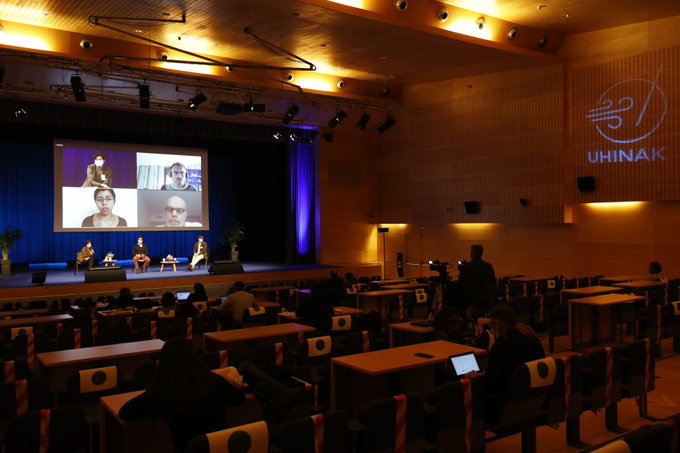
Índice de contenidos
A format that works
One of the new features this year has been the presentation of Uhinak in a hybrid format, combining the presence of the speakers in the Ficoba Auditorium with the participation of the conference participants online.
This format has been a perfect solution to the communication needs and to the sharing of thoughts and discussions at a conference of this kind, which in this fourth edition has had 180 participants.
It is worth noting the growing interest that the conference is generating among the many parties involved in the complex ecosystem of climate and coastal change. Attendees from the rest of Spain now account for 23% of the total, while those from France account for 13%, making the cross-border nature of the conference a reality.
About Uhinak
Uhinak, Cross-border Congress on Climate and Coastal Change promoted by Ficoba and the AZTI technology centre, is supported by a Technical Committee made up of representatives from the Basque Government (Ihobe), the Provincial Council of Gipuzkoa, the Community of Agglomerations of the Basque Country, Adegi, CSIC/ESADE/CEAB, Spanish Climate Change Office, BC3, EUCC Atlantic Center, the Association of Civil Engineers of the Basque Country, Naturklima Foundation, IAHR (International Association for Hydro-Environment Engineering and Research), the Observatory for Sustainability – Cristina Enea Foundation, the New Aquitaine – Basque Country Euroregion and AZTI.
Uhinak also has the support of many institutions such as the Department of Economic development, Sustainability and Environment of the Basque Government through its public company Ihobe, the Provincial Council of Gipuzkoa (Department of Environment), Communauté d’agglomération Pays Basque and the Nouvelle Aquitaine Region.
More information: www.uhinak.com
